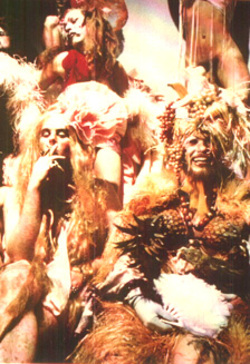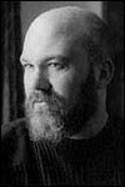 It is sad to report the loss of yet another elder of the community, novelist, poet, librettist…a literary and visionary mind, he was, in fact, a prolific writer in many genres, Thomas Disch.
It is sad to report the loss of yet another elder of the community, novelist, poet, librettist…a literary and visionary mind, he was, in fact, a prolific writer in many genres, Thomas Disch.
Disch was an American science fiction author…he preferred "speculative fiction"…and poet. He won the Hugo Award in 1999, and he had two other Hugo nominations and nine Nebula Award nominations to his credit, plus one win of the John W. Campbell Memorial Award, a Rhysling Award and to Seiun Awards, among many others. His latest book, to be published posthumously, The Word of God: Or, Holy Writ Rewritten, is written in the first 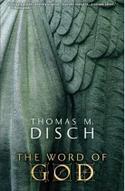 person, voice of God. When asked, he said this device "enabled him to speak nonsense and it would be true."
person, voice of God. When asked, he said this device "enabled him to speak nonsense and it would be true."
Disch was born in Des Moines, IA. In the 1960s, his work began appearing in science-fiction magazines. His first novel, The Genocides, appeared in 1965. He soon became known as part of the New Wave, writing for New Worlds and other avant-garde publications. His critically acclaimed novels of that time included Camp Concentration and 334. In the 1980s, he moved from science fiction to horror, with a series of books set in Minneapolis: The Businessman, The M.D. and The Priest.
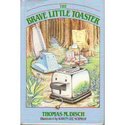 Perhaps his most widely read and affecting work was The Brave Little Toaster: A Bedtime Story for Small Appliances, in which a small toaster, a clock radio and an electric blanket come to life. Written as a children’s book, the New York Times’s Anna Quindlen quite rightly recommended, "By it for your children; read it for yourself." Made into a Hyperion (Disney) film with Jon Lovitz in 1987 it was an instant classic.
Perhaps his most widely read and affecting work was The Brave Little Toaster: A Bedtime Story for Small Appliances, in which a small toaster, a clock radio and an electric blanket come to life. Written as a children’s book, the New York Times’s Anna Quindlen quite rightly recommended, "By it for your children; read it for yourself." Made into a Hyperion (Disney) film with Jon Lovitz in 1987 it was an instant classic.
In America, Disch’s poetry remained little known until a 1989 mid-career retrospective collection, titled Yes, Let’s. A book of new poetry, Dark Verses & Light, followed in 1991. In 1995 and 2002, Disch published two collections of poetry criticism. He continued to regularly publish poetry in magazines and journals such as Poetry, Light, Paris Review, Partisan Review, Parnassus: Poetry in Review and even Theology Today (perhaps an odd choice for a long-lapsed Catholic). His "How To Behave When Dead" prescribes proper etiquette for the buried.
Near the end of his life he stopped submitting poetry to literary journals unless the journals asked for his contributions. He preferred to publish his poems in his LiveJournal blog account. In an interview just ten days before his death, Disch said, "I write poetry because I think it is the hardest thing I can do well. And so I simply enjoy the doing of it, as an equestrian enjoys spending time on a good horse. Poetry is my good horse." He wrote a series of poems on grammar and antagonized science fiction writers for encouraging people to believe in things like UFOs.
Disch partner of 30 years, poet Charles Naylor died in 2005, and he had recently suffered a crushing series of personal setbacks. He was reported to have been depressed for several years, badly hit by the death of Naylor, as well as fighting attempts to evict him from his rent-controlled apartment, that had, unbelievably, recently burned. His upstate New York home had also been flooded and he suffered from diabetes and sciatica.
Disch, who had proposed a calendar that commemorated famous self-annilators (like Sylvia Plath on February 11) took his own life on July 4th.
How to Behave when Dead
A notorious tease, he may pretend
not to be aware of you.
Just wait.
He must speak first. Then
you may begin to praise him.
Remember:
sincerity and naturalness
count for more than wit.
His jokes may strike you as
abstruse.
Only laugh if he does.
Gifts?
They say he’s mad for art,
but whether in the melting
elegiac mode of, say, this
Vase of Poppies
or, turning the mirror
to his own face, a bronze skull
gorging on a snake —
that is a matter of taste.
In any case, the expense
is what he notices.
What to wear.
Some authorities
still insist on black.
But really, in this modern age,
your best is all that is required.
— Tom Disch



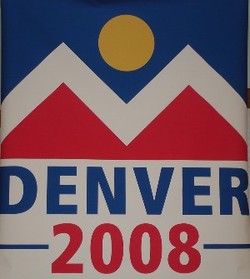
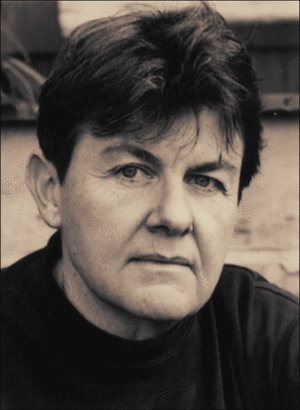
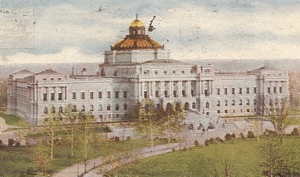 The position has been celebrated as the "catbird seat" of American poetry while others have complained about the position’s vagueness. Elizabeth Bishop hated her time as consultant while Robert Lowell described the position as "neither a librarian nor a Washington official, but something odd, one of the Government’s oversights." Indeed the role of the poet laureate has always been a bit vague and has changed over the years. Originally the position was seen as a real consultantship and the poet actually moved to DC to spend a year (or two years if their appointment was repeated) working at the Library of Congress in a pretty palatial office overlooking the Capitol building. Consultants were expected to oversee the Library’s vast holdings in poetry, to hold readings and to answer any questions about poetry. A congressman wanting to find just the right line from Cicero for his diatribe from the senate floor could call up the office and get some suggestions. Archibald MacLeish, the only poet to hold the position of Librarian of Congress, redesigned the position as a one year position to recognize an excellent poet and provide them with a year free of most constraints in which they could do research on future work. James Dickey gave the position it’s very public face and initiated the practice of inviting multiple poets to read at the library (a common practice today). Sadly poet laureates don’t move to DC anymore. Most hold academic teaching positions and only come to Washington to give their own readings (which launches the season) and also regularly travels to the capitol to introduce their selected poets. In those public readings I have had the pleasure of hearing some wonderful poets — Galway Kinnell, and Charles Simic and Donald Hall (the last two poet laureates). In Washington, people wait to hear who has been selected as laureate and then wait to hear who the laureate will invite to come read. These free readings by these great poets are among the special delights of living in the nation’s capitol.
The position has been celebrated as the "catbird seat" of American poetry while others have complained about the position’s vagueness. Elizabeth Bishop hated her time as consultant while Robert Lowell described the position as "neither a librarian nor a Washington official, but something odd, one of the Government’s oversights." Indeed the role of the poet laureate has always been a bit vague and has changed over the years. Originally the position was seen as a real consultantship and the poet actually moved to DC to spend a year (or two years if their appointment was repeated) working at the Library of Congress in a pretty palatial office overlooking the Capitol building. Consultants were expected to oversee the Library’s vast holdings in poetry, to hold readings and to answer any questions about poetry. A congressman wanting to find just the right line from Cicero for his diatribe from the senate floor could call up the office and get some suggestions. Archibald MacLeish, the only poet to hold the position of Librarian of Congress, redesigned the position as a one year position to recognize an excellent poet and provide them with a year free of most constraints in which they could do research on future work. James Dickey gave the position it’s very public face and initiated the practice of inviting multiple poets to read at the library (a common practice today). Sadly poet laureates don’t move to DC anymore. Most hold academic teaching positions and only come to Washington to give their own readings (which launches the season) and also regularly travels to the capitol to introduce their selected poets. In those public readings I have had the pleasure of hearing some wonderful poets — Galway Kinnell, and Charles Simic and Donald Hall (the last two poet laureates). In Washington, people wait to hear who has been selected as laureate and then wait to hear who the laureate will invite to come read. These free readings by these great poets are among the special delights of living in the nation’s capitol.